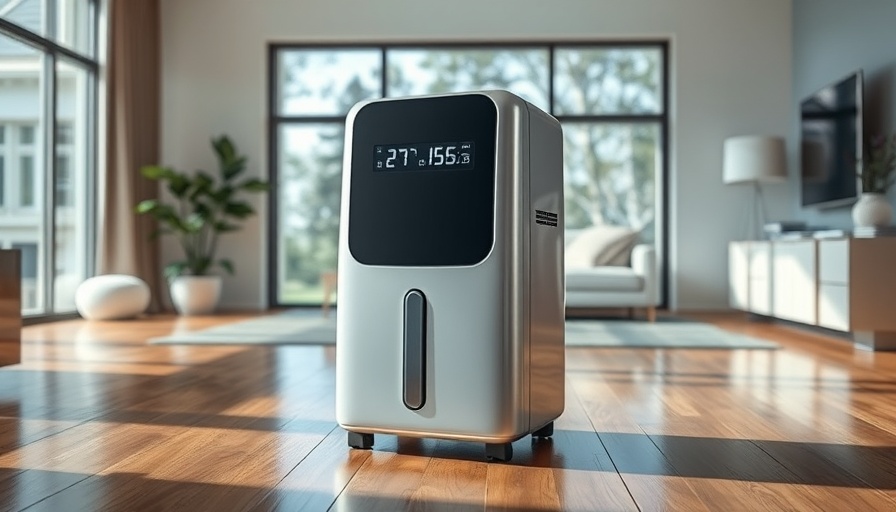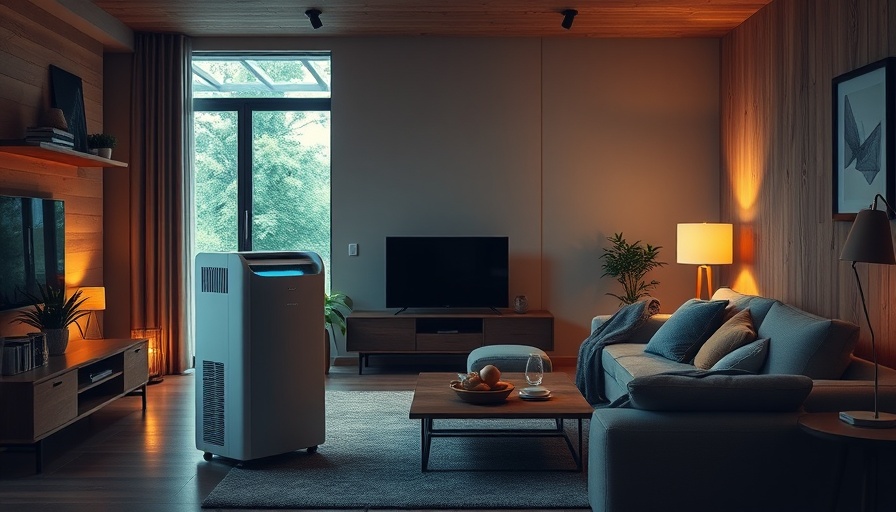
Understanding Portland's Humid Climate: A Necessity for Dehumidifiers
Portland, Oregon, known for its picturesque landscapes and vibrant culture, faces a unique challenge with its climate: managing excess humidity. With the Pacific Northwest’s average humidity often exceeding 70%, particularly from October through April, residents must consider efficient ways to combat moisture. High humidity levels not only contribute to discomfort but can also lead to mold growth, respiratory health risks, and increased energy costs.
Excess moisture in the air can create an environment ripe for mold and mildew, which exacerbates allergies and respiratory issues, making a reliable dehumidifier a crucial investment for homeowners, renters, and landlords alike. Understanding the importance of humidity control is vital for safeguarding both health and property.
Choosing the Right Dehumidifier: Key Considerations
When selecting a dehumidifier, homeowners should assess their specific needs based on factors such as room size, energy efficiency, and noise levels. Dehumidifiers typically measure their capacity in pints of moisture removed per day. Larger spaces, like basements, may require units with higher capacities (70 pints), while smaller areas may benefit from compact, portable models.
Energy efficiency is especially critical in Portland, where utility bills can balloon during the humid months. Opting for Energy Star-rated dehumidifiers not only reduces energy consumption but also saves money in the long run. Additionally, features like quiet operation should be prioritized for use in living spaces, ensuring comfort during restful hours.
Top Dehumidifier Recommendations for Homes in Portland
After considering various models rated by experts, here are some standout choices for Portland residents:
- Frigidaire 70-Pint Dehumidifier: Ideal for larger areas, this unit excels with a high extraction rate and a built-in pump for continuous drainage, making it perfect for basements. Users appreciate its reliability and effectiveness in maintaining humidity around 50%.
- Midea 50 Pint Cube: Compact yet efficient, this model has a large bucket capacity that reduces the need for frequent emptying. It's known for its reliability and quieter operation, perfect for those concerned about noise levels in their homes.
- hOmeLabs 70-Pint Dehumidifier: This versatile unit is well-regarded for its efficiency in damp environments. It features a user-friendly interface and a compact design suitable for various home settings.
- Frigidaire Gallery FGAC5045W1: Equipped with smart features, this dehumidifier allows for remote monitoring and control, making it a great option for tech-savvy homeowners. Although it has a smaller bucket capacity, its performance in removing moisture is commendable.
- Midea 20 Pint Cube: Best for smaller spaces, it shares design features with the larger Cube model while being more affordable and lighter, ideal for homeowners looking to manage humidity without extra bulk.
The Importance of Moisture Control in Home Wellness
Proper humidity levels contribute enormously to indoor air quality and overall home health. Maintaining the humidity between 30% to 50% not only inhibits mold and allergens but also enhances comfort by regulating temperature perception. This is particularly important during summer months when humidity can make hot temperatures feel unbearable.
Furthermore, lower humidity levels can help reduce energy consumption by allowing air conditioning units to work more efficiently, minimizing the risk of costly repairs and prolonging the life of HVAC systems.
Practical Tips for Managing Humidity
To enhance the effectiveness of any chosen dehumidifier, homeowners should make certain improvements in their living spaces. This includes ensuring adequate ventilation in areas prone to moisture, like bathrooms and kitchens, and regularly checking for leaks that could contribute to excess humidity.
Utilizing exhaust fans during high humidity activities such as cooking and showering can help reduce moisture buildup. Furthermore, investing in good insulation will prevent humid air from entering the home during rainy periods, further protecting indoor air quality.
In conclusion, the challenges posed by Portland’s moist climate necessitate proactive strategies for moisture control and home ventilation. Choosing the right dehumidifier is a vital step towards ensuring a comfortable and healthy living environment. With the right equipment and practices, homeowners can confidently manage humidity levels and protect their homes from the adverse effects of excess moisture.
 Add Row
Add Row  Add
Add 




 Add Row
Add Row  Add
Add 

Write A Comment